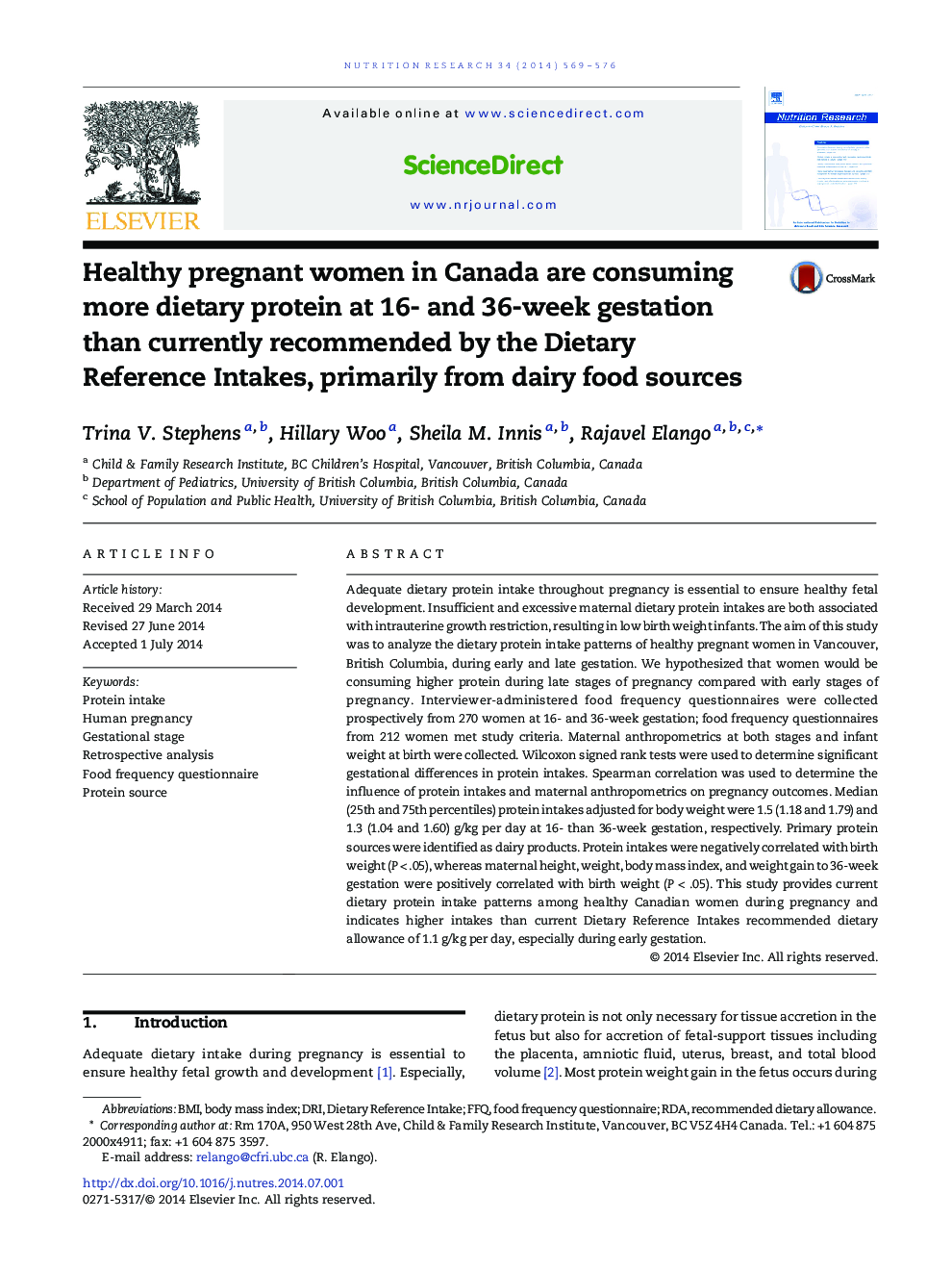| Article ID | Journal | Published Year | Pages | File Type |
|---|---|---|---|---|
| 2808939 | Nutrition Research | 2014 | 8 Pages |
Adequate dietary protein intake throughout pregnancy is essential to ensure healthy fetal development. Insufficient and excessive maternal dietary protein intakes are both associated with intrauterine growth restriction, resulting in low birth weight infants. The aim of this study was to analyze the dietary protein intake patterns of healthy pregnant women in Vancouver, British Columbia, during early and late gestation. We hypothesized that women would be consuming higher protein during late stages of pregnancy compared with early stages of pregnancy. Interviewer-administered food frequency questionnaires were collected prospectively from 270 women at 16- and 36-week gestation; food frequency questionnaires from 212 women met study criteria. Maternal anthropometrics at both stages and infant weight at birth were collected. Wilcoxon signed rank tests were used to determine significant gestational differences in protein intakes. Spearman correlation was used to determine the influence of protein intakes and maternal anthropometrics on pregnancy outcomes. Median (25th and 75th percentiles) protein intakes adjusted for body weight were 1.5 (1.18 and 1.79) and 1.3 (1.04 and 1.60) g/kg per day at 16- than 36-week gestation, respectively. Primary protein sources were identified as dairy products. Protein intakes were negatively correlated with birth weight (P < .05), whereas maternal height, weight, body mass index, and weight gain to 36-week gestation were positively correlated with birth weight (P < .05). This study provides current dietary protein intake patterns among healthy Canadian women during pregnancy and indicates higher intakes than current Dietary Reference Intakes recommended dietary allowance of 1.1 g/kg per day, especially during early gestation.
